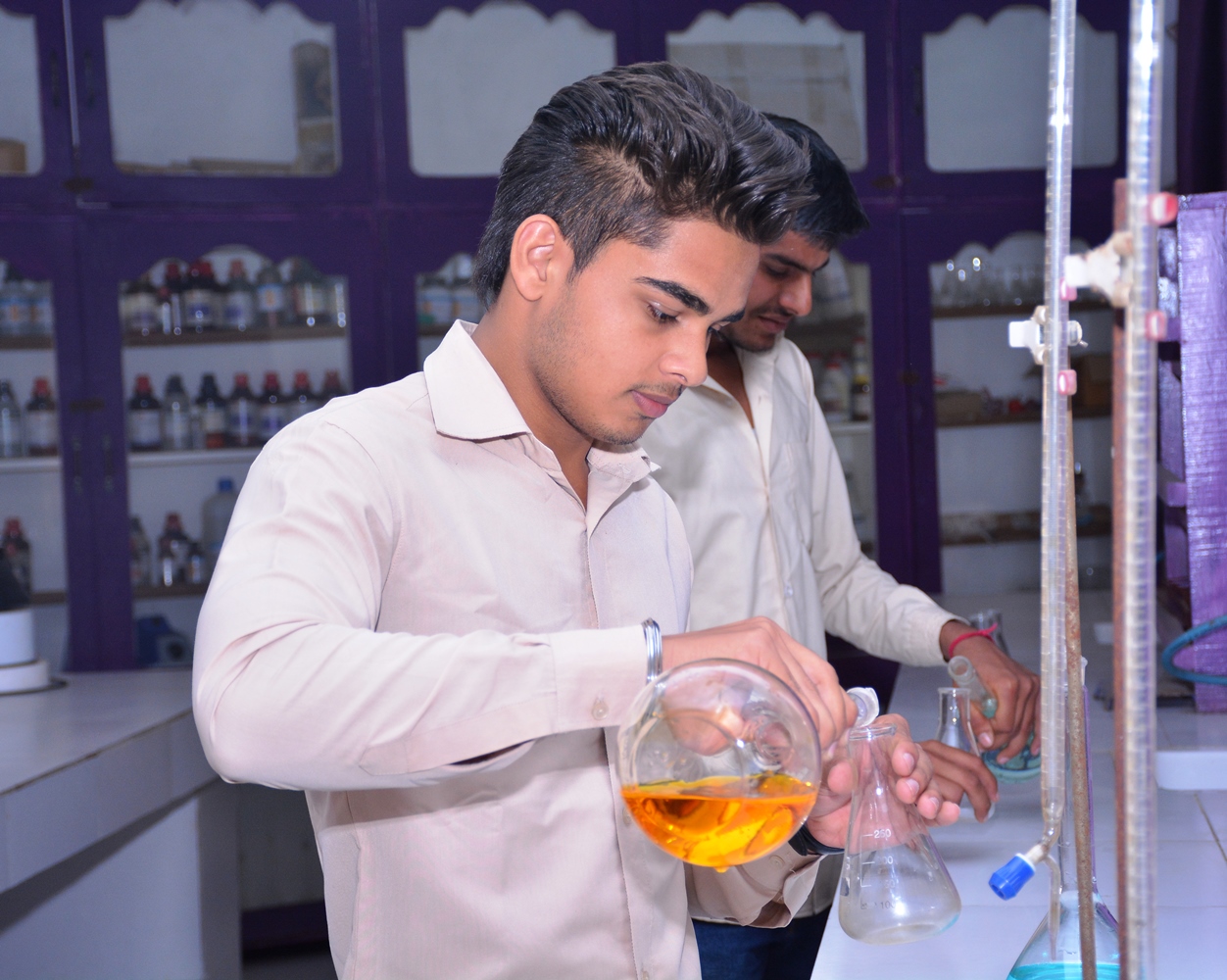Physical Science

NAME OF THE PROGRAM:
B.SC. With Physics, Maths, Computer, Geography & Chemistry.
COURSE DESCRIPTION
A 3 Year Degree Program of Physical Science is a course of study that focuses on the principles of physics, chemistry, computer, mathematics and geography.
After completing 12th grade with a Science background, you can apply for admission to the program.
LEARNING OUTCOMES
- The learning outcomes of a B.Sc. program with a combination of Physics, Mathematics, Computer Science, and Chemistry cover a wide range of interdisciplinary skills and knowledge. Here’s an overview of the learning outcomes for each subject:
1. Physics
- Understanding Core Concepts: Gain a strong foundation in classical mechanics, thermodynamics, electromagnetism, quantum physics, and modern physics.
- Analytical Skills: Develop the ability to model physical systems and solve complex problems using mathematical and computational techniques.
- Practical Skills: Conduct experiments, analyze data, and understand physical phenomena through hands-on laboratory work.
- Application of Physics: Apply physical principles to real-world situations, including electronics, materials science, and other technologies.
2. Mathematics
- Problem-Solving: Acquire skills to approach and solve abstract mathematical problems using logical reasoning.
- Mathematical Techniques: Master essential concepts such as calculus, algebra, differential equations, and linear algebra.
- Data Interpretation: Develop the ability to use mathematical models to interpret and analyze data in scientific and technical contexts.
- Interdisciplinary Application: Learn to apply mathematical principles to areas such as physics, computer science, and other scientific fields.
3. Computer Science
- Programming Proficiency: Develop strong programming skills in languages such as Python, C++, Java, etc.
- Algorithms and Data Structures: Understand algorithms, data structures, and how to optimize computational tasks.
- Software Development: Gain experience in designing, testing, and implementing software solutions.
- Problem-Solving with Technology: Apply computational thinking to solve problems in physics, chemistry, and mathematics.
4. Chemistry
- Chemical Principles: Gain knowledge of organic, inorganic, and physical chemistry, including chemical reactions, bonding, and molecular structure.
- Laboratory Techniques: Develop practical laboratory skills in chemical analysis, synthesis, and experimentation.
- Critical Thinking: Learn to analyze chemical data and interpret experimental results.
- Applications of Chemistry: Understand how chemical processes apply to fields like pharmaceuticals, environmental science, and materials science.
Overall Learning Outcomes:
- Interdisciplinary Knowledge: Develop a broad understanding of the natural and computational sciences, equipping students to tackle complex, real-world problems.
- Research and Analytical Skills: Learn how to conduct scientific research, analyze data, and interpret findings across multiple disciplines.
- Critical Thinking: Sharpen critical thinking and problem-solving skills by approaching challenges from multiple scientific perspectives.
- Teamwork and Communication: Work effectively in teams and communicate complex scientific ideas clearly in both written and oral forms.
- Preparedness for Higher Education/Industry: Be well-prepared for higher education (Master’s or Ph.D. programs) or careers in industries such as technology, research, education, and more.
Instructor
Featured Review
A B.Sc. with Physics, Mathematics, Computer Science, and Chemistry is highly valuable due to its interdisciplinary nature, providing a strong foundation in both theoretical and practical knowledge.
